- Home
- Helen Forrester
Liverpool Daisy Page 10
Liverpool Daisy Read online
Page 10
After tea they went to inspect the newly decorated bedroom.
“Eee, it’s awful quiet now your Nan’s gone,” lamented Daisy. “I wish they’d let our Lizzie or our Jamie out — real hard it is for him. And me not able to afford to visit either of them and all.”
“What about having a boarder in here?” suggested Maureen Mary. “It’d be company. Some young girl by herself, like?”
Daisy looked down at the top of Bridie’s shining head cradled against her chest, and sighed. While she considered Maureen Mary’s suggestion, she got up and gently set the little girl down in her place on the easy chair. The rain had stopped but the day was overcast and the room was full of shadows. She lit the oil lamp and the room immediately looked cosier. Then she took down the two china dogs from the mantelpiece and gave them to Bridie to play with. This was one of the treats of visiting grandma, and Bridie slipped joyfully down on to the hearth rug with them. Daisy smiled down at her; however hard-pressed, she had never pawned the china dogs since Bridie had taken a fancy to them.
“Aye, it’s not a bad idea, that,” she said heavily, in response to Maureen Mary’s suggestion.
“You could put a notice in Mrs. Donnelly’s shop window — it’s twopence for a week, if I remember right — and you can have as many words as you like.”
Daisy nodded, and bent forward to turn little Bridie’s coat which had been hung over the oven door to dry. Maureen Mary’s coat hung steaming from the back of a straight chair crowded with them near the fire. Winter was setting in, thought Daisy, and in the rain she would not be able to carry on her new-found lucrative trade. “I got a new blanket from the Welfare that I could put on the bed,” she said finally. “If I could get a cheque from the club man I could buy some sheets and things. Last time I arst they wouldn’t give me, ’cos I don’t always have the money ready every week when the club man come to collect. Worse’n the rent collector, they are.” She sniffed. “Got to pay it off every week, or you don’t get another, he tells me.”
The next day, the kettle was refilled and boiled most of the day, while Daisy scraped and cleaned the bedroom floor, after she had heaved out the rotten linoleum and stowed it in a corner of the yard.
Afterwards, she lay on her bed in the landing bedroom. Her mouth was sore, so she took her teeth out and laid them on the bed beside her, where they grinned at her in the half-light.
She thought wistfully how nice it would be to have a proper bed for herself, with blankets and sheets and a bedspread. Next time, maybe. This time she had to give the best bed to a lodger — at least for the winter.
FOURTEEN
The rain came down intermittently for most of the following week and put a temporary end to Daisy’s street-walking. She managed to obtain a cheque from the finance company, and she bought a pair of sheets, two pillowcases, a small blanket and a cotton bedspread. Maureen Mary contributed a pair of curtains for the bedroom from her own house. She also helped her mother to stain and varnish the oak floor, while Bridie played with Moggie and the china dogs. There was a little varnish left over, so they did the chest of drawers as well.
Mrs. Donnelly put the advertisement, written on an envelope, in the window, amongst a dog-eared collection offering old furniture for sale, the services of Bill Donohue, painter, and Mary Devlin, sitter, kittens to give away and rooms for rent.
There was no response. Nobody came to see the room, except Nellie and Mary, Meg’s daughter, who arrived together. Mary had retreated to the safety of her Aunty Daisy’s house while a family row raged in her own home. Both visitors declared the room lovely, nicer than a hotel. Mary thought of the misery she suffered from sharing a bed with two younger brothers and a restless sister.
“I wish I could live with you, Antie Daise,” she said wistfully.
“Yer Ma’d never let you,” replied Daisy frankly, as she stroked her niece’s lank brown hair. “There’ll be a bit more room in your house when your Uncle Albert gets married — and maybe your Emily and her husband’ll get a council house and move out soon.”
“Yes,” Mary agreed, and leaned lovingly against her aunt’s comforting bulk.
“You’re really lucky to have such a big house all to yourself,” remarked Nellie, “A bedroom, a landing bedroom and all.”
“Oh, aye, But this house’s been crowded in its time. Remember when you and George was still here with your first two babies? God rest their little souls. There was me other older brother and Meg and Agnes and me — and me father and me Mam — and me father’s sister what was single and had a flower basket outside of Central Station of a Saturday. Then Meg married and went to old Fogarty’s house, and I married Mike and we had Maureen Mary here.”
Nellie nodded her curly head over her tea mug. “Aye. It was fun sometimes. But your poor Mam thought she would go daft.”
Daisy chuckled. “We had some good times and some good laughs, for all that.” She leaned over, teapot in hand to fill up Nellie’s mug, and then continued, “I’m going to get a lodger — to help me through the winter. Mike’s allotment wouldn’t keep a cat in fish — I’m hoping to find somebody who’s workin’.”
“Working?” inquired Nelly scornfully.
Daisy grinned. “There’s still a few in work, though you might not think it. Those working on the big tunnel under the river is working.”
Nellie shrugged. “Wish you luck.”
In the evening the rain finally drifted out to sea and the moon rose clear and serene. Daisy thankfully flung her shawl over her shoulders and went up to the Ragged Bear for her Saturday half pint.
She got her usual seat on the bench by the fire, and spent a happy hour with two cronies from a few streets away, hearing all the latest tittle-tattle of births and deaths, all of which appeared to have been gruesome in the extreme.
She managed to make the half pint last until closing time at ten o’clock; then, after standing talking under the lamp post at the corner for a few more minutes, she made her way leisurely down to the river. There was a hint of frost in the air, and the nostrils of her strong straight nose dilated as she enjoyed the freshness of the breeze. She walked for a little while along silent Grafton Street, savouring the air. On her return, she paused to lean against the wall, to look out over the dock to the placid river, where the lights of Birkenhead and Rock Ferry twinkled back at her. Cigarette smoke had wafted round her for several minutes before she realised that a solitary man a few feet away was similarly engaged.
Normally, she would have quickly recrossed the road to avoid him — that’s what a woman who kept herself to herself would have done, she told herself. But instead, she said cheerfully to him, “Nice night.”
“It is,” replied an Irish voice, with a brogue so thick that Daisy ventured to inquire if he was newly come from Dublin.
“Aye.”
“Looking for work?”
“No. Me brother got me a job down there.” He pointed to the dock below them. “Watchman.”
Daisy clucked. If her brother, George, had had his wits about him he might have got that job. Then dear Nellie might have had the money for a doctor.
The stranger moved a little closer during her silence. She could see the friendly glow of his cigarette, as he flicked the ash over the wall.
“You’re lucky,” she said with a friendly grin.
He chuckled. “Luck of the Irish!”
A ship’s bell rang the half-hour. The man heaved himself straight. He was a tall, thin man, with long, lanky arms. In the gloom, under a flat cap, she could just make out the handsome, though saturnine, face of a man in his early thirties.
“That must be ten-thirty,” he remarked, in reference to the bell. “Don’t have to be there till midnight.”
A silence fell between them and they contemplated the river, until Daisy said cautiously, “That’s a long wait.”
“It is indeed.”
Daisy sighed. “I must get home.”
She moved from the wall, and the stranger turned with h
er towards the entry to the Herculaneum Dock. “You live round here?” he inquired.
“Aye, up past the Hercy.”
They paced along together, Daisy with her arms folded under her shawl, he smoking his cigarette. She could feel herself beginning to shiver with a kind of joyful anticipation which by her standards no decent woman should feel.
“Your old man will be wonderin’ where you got to?” ventured the watchman.
Daisy laughed. “Not he. He’s been at sea for months.” She looked slyly at her companion from out of the corners of her eyes. “I ain’t got nobody at home at present.” She sighed. “It’s proper lonely o’ nights.”
The man agreed that it was proper lonely, and proceeded to make himself agreeable to the sufferer.
Daisy suddenly realised that she had a use for the newly decorated bedroom.
FIFTEEN
Daisy leaned over a faded collection of packets of biscuits, bottles of liniment and dusty imitation chocolate bars in order to retrieve her advertisement from Mrs. Donnelly’s window. She screwed up the little envelope and threw it into the street.
“You got a lodger already?” inquired Mrs. Donnelly, as she put a side of bacon through the slicer. The slicer whirred with an ominous sibilance as if to warn of its sharpness.
“Yes,” lied Daisy glibly. A lodger would explain away a man entering her house; and her new-found acquaintance had promised to come again. Three shillings from him was nestling comfortably in her apron pocket at that moment.
“Who yer got?”
You nosy so-and-so, thought Daisy. Aloud, she said, “He told me he’s a night watchman at the Hercy. He’s a quiet type — he’ll be no trouble.”
“Humph,” grunted Mrs. Donnelly. “Will yer husband mind?”
“I haven’t asked him,” replied Daisy tartly. “I’ll thank you for a pound of that bacon, Mrs. Donnelly.”
Mrs. Donnelly slapped a handful of bacon on the scale. The indicator danced away below the pound sign. Daisy pointed accusingly at it. “Put it on slow,” she ordered. “That’s no pound.”
With tight lips, Mrs. Donnelly put a finger on the scale to steady it, let it come to rest and then added another couple of rashers. “I can’t be right all the time,” she argued.
“You’re always on the right side of right — your side,” snarled Daisy.
Mrs. Donnelly rolled the bacon into a piece of paper and slammed it on the worn counter. Daisy scooped it up.
“That’ll be tenpence.” Mrs. Donnelly clenched her teeth together. She would not allow herself to be drawn into another fight with Daisy. She was still smarting over her ruined hat, and she shuddered when she considered what damage a rampaging Daisy might wreak in her store.
To her surprise, Daisy did not ask for the tenpence to be put on the slate at the back of the counter, where customers indebtedness was recorded for all to see. She produced the money.
Mrs. Donnelly took the coins and put them into the wooden till. She was still staring at the open till drawer when Daisy wheeled round and marched out.
“Nosy bugger,” muttered Daisy.
Daisy fell into a routine which was comfortable to her. On fine nights she worked the small street behind London Road. When the weather threatened rain or frost, she would meander along Grafton Street and occasionally pick up a man there. Her house being the only one which faced the river gave her a high degree of privacy; and women rarely ventured along the dock road at night, not because it was dangerous but because there was nothing to attract them to it; so all she had to do was to be careful not to approach a local man. Sometimes she did well, sometimes she was out of luck, as she put it.
Money which she dared not spend locally began to accumulate in an old tobacco tin. She tucked the tin away at the back of the shelf in the cupboard in the front bedroom and covered it with two extra petticoats she had bought herself in the town. Nobody sees petticoats, she had told herself, as she bought them.
Christmas Eve was a fine night and London Road was thronged with eager last-minute shoppers, despite the amount of unemployment in the city. The pub near Daisy’s beat was very busy with rubicund men and pale, shadowy women standing glass in hand even in the parlour.
Daisy had just come to the conclusion that everyone was too busy with family or friends to bother with a woman, when she was accosted by a small, shabby man in a bowler hat. They retired up the narrow alleyway.
Because Daisy was so plump and the man was so small in stature, matters did not proceed very satisfactorily and he demanded his money back.
“Go on with yez,” retorted Daisy roundly. “You’ve had your bit of fun. Now piss off.” She glowered at him as she buttoned her blouse.
“You give me that money back or I’ll call the cops, you thieving bitch.” He leaned towards her and seizing the neckline of her blouse ripped it open.
“Gerroff. What do you think you’re doin’?” demanded Daisy furiously, hastily clasping her blouse together with one hand while she gave him a sharp push with the other.
He was surprisingly strong for his size and came back at her, one fist raised. “Give me me money,” he snarled. He brought his fist heavily down on her half bare breast. She felt a sharp prick and looked down in sudden terror. Blood was welling up from a small wound.
She went white with fear and backed to the wall; the alley was so narrow that it offered her little room for manoeuvre.
“Want it in yer face?” He raised his hand again. There was a glint of steel in the faint light.
Her heart beat violently as she stared at him. Her panic was so great that she could not make herself either answer him or produce the money. If he wounded her, she had no one to turn to and if he murdered her, who would know or care?
“Well?” he asked, flourishing the weapon.
Her bleeding chest rose and fell with the big breaths she took as she continued to goggle at him.
She began to whine. “You had some fun. I didn’t mean no harm. What you so fussy about?” With every show of reluctance, she felt around in the deep pocket she had made in her black skirt to hold her money.
The hand holding the razor seemed to relax a little, and, as a sense of outrage took over from panic, she took her time looking for his half-a-crown.
“Come on!” The blade moved closer despite the slight relaxation of his hand.
“I’m getting it! I’m getting it,” she said testily. She sniffed, and drew out the coin.
Holding it up between forefinger and thumb, she gritted her teeth and sidled up close to him until the blade nearly touched her. She put her free arm round him and slid her hand suggestively down his back. The blouse released from her hold fell open. “Like to try again?”
“No, you filthy git.” He snatched the coin from her fingers.
She backed away from him towards the further end of the alley, clutching her shawl over her nakedness. He laughed at her as he pocketed her money. “That’ll teach you,” he sneered.
“Ya, you gutter scum,” she jeered back.
She whipped around and ran up the alley to where it joined a cross entry. In a few seconds she was panting along Lime Street, cursing under her breath.
She flung into her house as if the whole of the Liverpool Police Force was after her. She shot the bolt on the front door—it was stiff from infrequent use—and leaned against the inside, as if she had run all the way home instead of having sat on a tram for twenty minutes.
She felt her way to the table, found her matches and lit the lamp. Then, still holding her shawl round her she climbed the stairs to the bedroom, it being the most secret place she could think of. She put the lamp down on the brightly varnished chest of drawers and went over to the window and hastily flicked the curtains shut.
She sat down on the bed feeling overwhelmed with weakness. The bed creaked complainingly. Very slowly she let her shawl slip off her and looked down at the cut on her breast. Blood had trickled down to the waistband of her skirt and then dried, though the cut itself was
still damp. She dabbed fearfully at the wound with her torn blouse, but it was no longer oozing and she let out a sigh of relief. Then she let drop from her other hand the wallet she had been clutching all the way home.
She was nearly as scared at the sight of the wallet as she had been of the cut on her chest. Pinching from Woollies or Lewis’s was one thing; stealing from a man who might come back for revenge was another. And yet the bugger had asked for it, she told herself, and she had been smart enough to get it out of his hip pocket without his realising it had gone. With a bit of Irish luck he might not discover its loss for a little while, and then he could not be sure where he lost it.
It was an old, oil-stained pocket book, covered with a worn design of camels and pyramids. She opened it cautiously and with trembling fingers drew out its contents. She counted out seventeen pound notes and three ten shilling ones. She gazed in amazement at the pile of money. He must have just been paid off, she assumed. She looked through the papers it also contained. There was an identity card made out in the name of Thomas Ward by a shipping company in Liberia, a receipt or two, a snap of a group of black people and another of a fat woman sitting in a deck chair on a beach.
The trembling of her hands spread to the rest of her body and she sat shivering helplessly for a few minutes. She had been bent on revenge and now she wondered fearfully what would happen to her if she were caught with the wallet.
Still shivering, she got up and went to the cupboard and took down the tobacco tin from under her petticoats. It was heavy with about five pounds’ worth of silver in it. She added the notes to it.

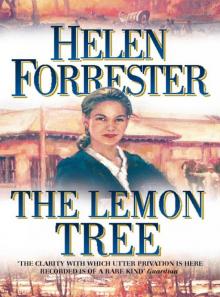 The Lemon Tree
The Lemon Tree Thursday's Child
Thursday's Child Yes, Mama
Yes, Mama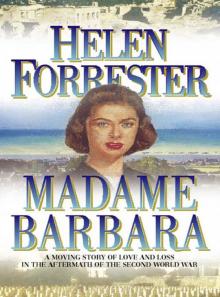 Madame Barbara
Madame Barbara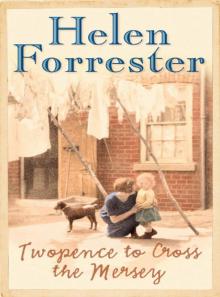 Twopence to Cross the Mersey
Twopence to Cross the Mersey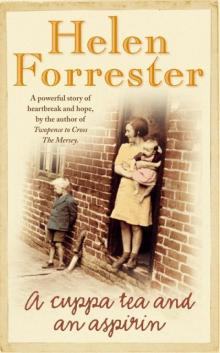 A Cuppa Tea and an Aspirin
A Cuppa Tea and an Aspirin The Moneylenders of Shahpur
The Moneylenders of Shahpur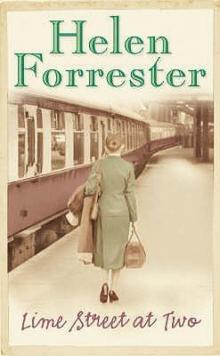 Lime Street at Two
Lime Street at Two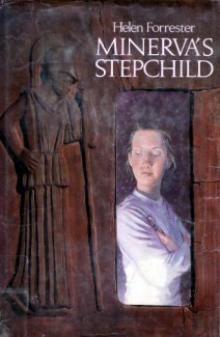 Minerva's Stepchild
Minerva's Stepchild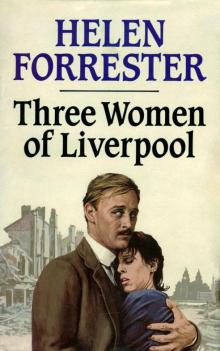 Three Women of Liverpool
Three Women of Liverpool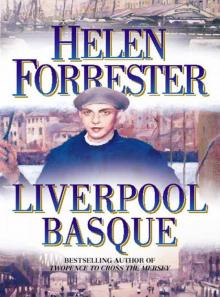 The Liverpool Basque
The Liverpool Basque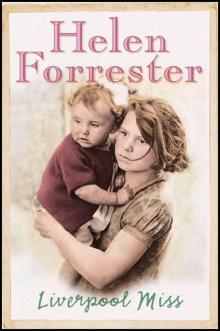 Liverpool Miss
Liverpool Miss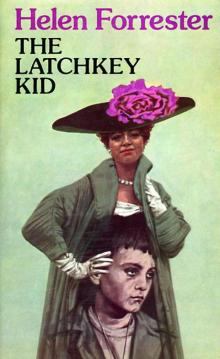 The Latchkey Kid
The Latchkey Kid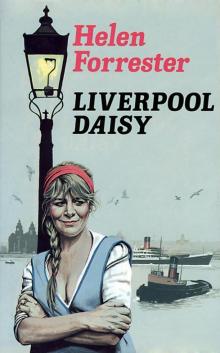 Liverpool Daisy
Liverpool Daisy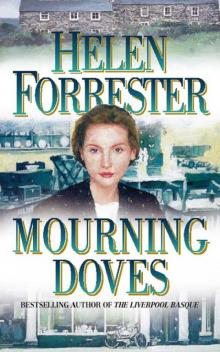 Mourning Doves
Mourning Doves